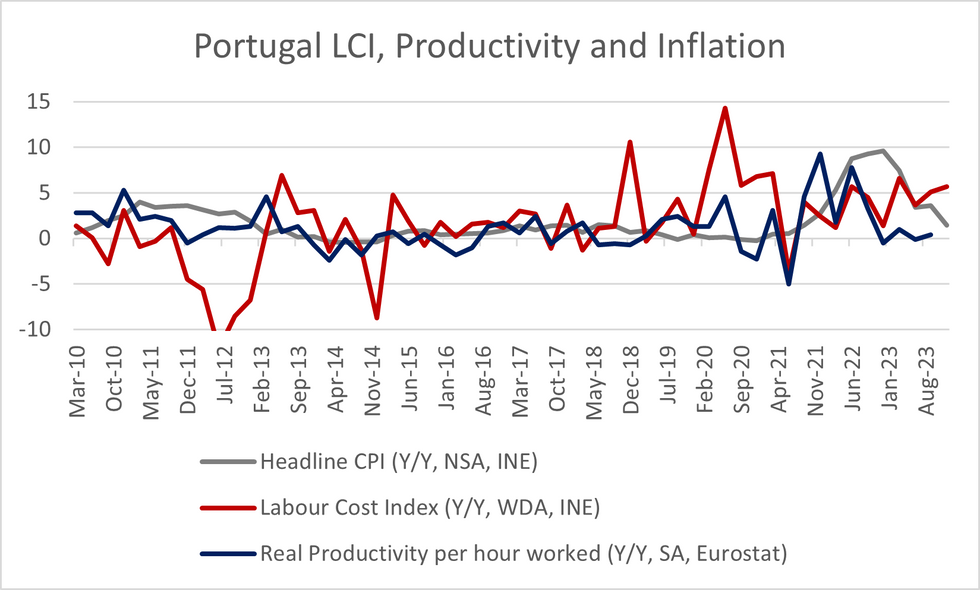-
Policy
Policy
Exclusive interviews with leading policymakers that convey the true policy message that impacts markets.
LATEST FROM POLICY: -
EM Policy
EM Policy
Exclusive interviews with leading policymakers that convey the true policy message that impacts markets.
LATEST FROM EM POLICY: -
G10 Markets
G10 Markets
Real-time insight on key fixed income and fx markets.
Launch MNI PodcastsFixed IncomeFI Markets AnalysisCentral Bank PreviewsFI PiFixed Income Technical AnalysisUS$ Credit Supply PipelineGilt Week AheadGlobal IssuanceEurozoneUKUSDeep DiveGlobal Issuance CalendarsEZ/UK Bond Auction CalendarEZ/UK T-bill Auction CalendarUS Treasury Auction CalendarPolitical RiskMNI Political Risk AnalysisMNI Political Risk - US Daily BriefMNI Political Risk - The week AheadElection Previews -
Emerging Markets
Emerging Markets
Real-time insight of emerging markets in CEMEA, Asia and LatAm region
-
Commodities
-
Credit
Credit
Real time insight of credit markets
-
Data
-
Global Macro
Global Macro
Actionable insight on monetary policy, balance sheet and inflation with focus on global issuance. Analysis on key political risk impacting the global markets.
Global MacroDM Central Bank PreviewsDM Central Bank ReviewsEM Central Bank PreviewsEM Central Bank ReviewsBalance Sheet AnalysisData AnalysisEurozone DataUK DataUS DataAPAC DataInflation InsightEmployment InsightGlobal IssuanceEurozoneUKUSDeep DiveGlobal Issuance Calendars EZ/UK Bond Auction Calendar EZ/UK T-bill Auction Calendar US Treasury Auction Calendar Global Macro Weekly -
About Us
To read the full story
Sign up now for free trial access to this content.
Please enter your details below.
Why MNI
MNI is the leading provider
of intelligence and analysis on the Global Fixed Income, Foreign Exchange and Energy markets. We use an innovative combination of real-time analysis, deep fundamental research and journalism to provide unique and actionable insights for traders and investors. Our "All signal, no noise" approach drives an intelligence service that is succinct and timely, which is highly regarded by our time constrained client base.Our Head Office is in London with offices in Chicago, Washington and Beijing, as well as an on the ground presence in other major financial centres across the world.
Real-time Actionable Insight
Get the latest on Central Bank Policy and FX & FI Markets to help inform both your strategic and tactical decision-making.
Free AccessQ4 Labour Cost Acceleration Underlines Inflationary Concerns
The Portuguese Q4 Labour Cost Index (per hour worked, WDA) rose +5.7% Y/Y, from an upwardly revised +5.1% prior. While Portugal is not a major Eurozone economy in terms of weighting (for context, it is only 2.4% of the EZ 2023 HICP weighting), it provides support to the view that the ECB will need to assess Q1 '24 wage pressures before comfortably being able to begin their easing cycle.
- The rise in the LCI came as average costs per employee rose at a faster rate than total hours worked per employee, with the former rising +6.1% Y/Y (vs +6.6% prior) and the latter +0.4% Y/Y (vs +1.6% prior).
- Breaking down the Q4 LCI figure, wage costs (per hour worked) rose +5.5% Y/Y (vs +4.8% prior) while other labour costs (per hour worked) rose +6.8% Y/Y (vs +6.4% prior).
- At a sector level, services saw the largest increase in wage costs per hour (+5.8% Y/Y) though the smallest rise in other labour costs (+6.1% Y/Y).
- With respect to inflation, we see that LCI growth has outpaced real productivity per hour worked since Q3 '22. This will have pushed up unit labour costs and has likely contributed to sticky services inflation in Portugal. Services CPI rose to 4.51% Y/Y in January '24 (vs 4.15% in December).

To read the full story
Sign up now for free trial access to this content.
Please enter your details below.
Why MNI
MNI is the leading provider
of intelligence and analysis on the Global Fixed Income, Foreign Exchange and Energy markets. We use an innovative combination of real-time analysis, deep fundamental research and journalism to provide unique and actionable insights for traders and investors. Our "All signal, no noise" approach drives an intelligence service that is succinct and timely, which is highly regarded by our time constrained client base.Our Head Office is in London with offices in Chicago, Washington and Beijing, as well as an on the ground presence in other major financial centres across the world.
